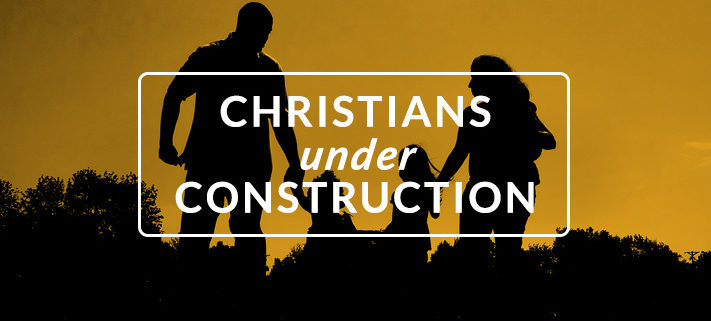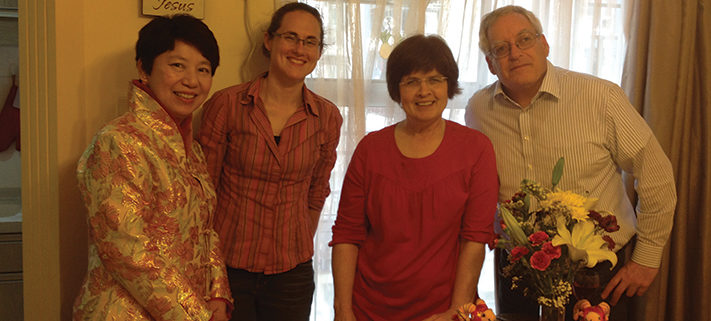Rebel With a Cause
The Virtue of Being a Rebel
If we take a quick scan through the 2013 TEDx Youth San Diego program, we notice some similarities between the guest speakers. Matthew Emerzian, among other things, is author of Every Monday Matters – 52 Ways to Make a Difference. Shaka Senghor recently published Live in Peace: A Youth Guide to Turning Hurt into Hope. Brittany Wenger is a biology and computer science freshman at Duke who won several awards for Breast Cancer awareness and fundraising projects. Martina Gray offers yoga instruction to bring peace and alignment into the lives of her students. David Joseph, a UCLA junior, co-founded Northern Uganda Medical Mission. And so what do we get when we bridge TED talks (the world’s most popular platform for brilliant people sharing ideas on technology, entertainment, and design) with Millennials?1 We get a full slate of brilliant people interested in causes, interested in being parts of little revolutions for social and global change. It’s not enough to simply be brilliant. You need to be both brilliant and changing the world, both a renaissance man and a rebel.2
Rebellion against the status quo or against being another cog in the machine is important to Millennials.
Which ought to tell us that causes3 are highly valued and play a major role in how Millennials identify themselves. Somehow rebellion against the status quo or against being another cog in the machine or against being another brick in the wall is important. Simply take a look at any book, web article, or newspaper column concerning business tactics for a millennial demographic. For one example:
“90 percent of millennials are likely to switch from one brand to another—even when price and quality are equal—if the second supports a cause…. Millennials are prepared to reward socially responsible companies; they are more likely to trust these companies, seek their employment and buy or recommend their products to others. According to a Cone study, after learning that a company is socially and/or environmentally responsible:
- 83 percent are likely to trust the company more
- 79 percent are likely to purchase that company’s products
- 44 percent are likely to actively pursue working at that company
- 74 percent are more likely to pay attention to that company’s message because it has a deep commitment to a cause.”4
In an age of mass conformism and consumerism and information, one major millennial cardinal virtue is being a rebel, someone willing to stand for just causes and stand against negative practices. And this affects even acts as simple as choosing one brand over another. The major vice, then, is inactivity in the face of information that demands a clear response.
Come, Follow Me. Be a Rebel.
So how does the pastor reach out to a generation whose cardinal virtue is rebelling against the status quo and cardinal sin is inactivity? Perhaps we could rephrase the question: How do we share a world-changing message with a generation that wants to change the world? The gospel, too, is a cause, but a far greater one compared to any earthly cause the world has to offer. Consider the following ways Scripture pictures the gospel:
How do we share a world-changing message with a generation that wants to change the world?
Gospel as mystery. Paul writes in Colossians 1:25-27 that to be an evangelist is to present “the mystery that has been kept hidden for ages and generations … Christ in you, the hope of glory.” When you’re sharing the gospel, you’re busting free a mystery that’s been largely hidden from the world. You’re in the know of a life-changing message, the world’s only hope for glory. If you’ve ever talked to a Millennial passionate about this or that particular cause, she acts as if she’s letting you in on a secret, maybe a secret the government or the corporations don’t want you to hear (and in some cases she may be right!). And she’s so excited to subvert the powers-that-be who don’t want you to know. Feel the energy millennial rebels have, and remind yourself that you can bring the same energy to the pulpit when you bust free your Mystery and subvert the powers of Satan that don’t want your audience to know the Mystery.
Millennials want to love something bigger than themselves and their possessions. They’re striving for a transcendent purpose.
Gospel as radical shift. John writes in his first letter (2:15-17) “Do not love the world or anything in the world…. The world and its desires pass away, but whoever does the will of God lives forever.” Part of the desire to be wrapped up in a cause is the desire to escape North American complacency, consumerism, and economic self-centeredness. Millennials want to love something bigger than themselves and their possessions. They’re striving for a transcendent purpose. And that’s exactly what God tells us we have. As children of God, we serve purposes far greater than what common experiences would lead us to believe. Doing God’s will, especially his will to bust out the mystery of the gospel, takes priority over everything, and so John urges us to not let love for earthly things trump our love to carry out our transcendent purpose as evangelists. God asks us to radically shift our priorities, and this shift is something the Millennial is attracted to, a shift the Millennial is very ready to make in her life for lesser causes.
Gospel as invasion. The actual state of affairs in this world is far different than what it appears to be. As his English audience is dealing with World War II and its aftermath, C.S. Lewis writes concerning how Christians view the world,
“Enemy-occupied territory—that is what the world is. Christianity is the story of how the rightful king has landed, you might say landed in disguise, and is calling us all to take part in a great campaign of sabotage. When you go to church you are really listening-in to the secret wireless from our friends.”5
In a very real sense, Christianity is about rebellion: it’s about the Holy Spirit creating faith in our hearts that cling to the promise that Jesus has defeated sin, death, and the devil on the cross, and now creates in us the ability to take part in the final invasion of the enemy’s territory. When we pray, “Your kingdom come,” we are praying that we share the revolutionary gospel message that will defeat the strongholds of Satan in the hearts of our friends and family (2 Corinthians 10:4) and will set free one more soul from bondage (Luke 4:18). If Millennials are looking for a cause to make real change in this world, a cause that ends slavery, cruelty, and suppression, tell them to look no further, and invite them to be part of the invasion. It will look different than any other invasion, since his Kingdom is not of this world. But it’s an invasion of far greater scope than any the world has ever seen.
The Gospel ministry as the ultimate cause. Here we state the obvious: If a Millennial wants to be part of a cause that matters, nothing comes close to the cause of the gospel. It’s a mystery to much of the world (and to many of our friends and families) about how God through the incarnation is reclaiming the world from sin, death, and the devil, and to be part of this cause requires a radical life shift that only the Holy Spirit gives us the ability to begin. And so how do we share a world-changing message with a generation that wants to change the world? Simply tell it to them, in all its epic glory as Scripture presents it.
Come, Follow Me. Be a Rebel Without a Cause.
Far more than simply being one of many causes a person could champion in their life, it turns out that the gospel is the mother (literally) of all righteous causes. The real reason a person ought to care for our planet is that it was created by God for us to steward. The real reason a person ought to care for outcasts, the poor, and those who cannot defend themselves is that God not only created them, but he loves them and died for them. And so, for the Christian, each human has the infinite value of the blood that Christ desires to clothe them with. This makes the Christian gospel cause the mother and logical source for tons of lesser causes. Consider the impact Genesis 1 has on environmentalism, or Psalms 51 and 139 on the pro-life movement, Deuteronomy 15:11 and Acts 20:35 on the needy and poor, Jesus’ ministry of compassion on the sick (e.g. Mark 5:25-29) on support for medical research and care for the sick, passages like James 1:27 on orphanages and foster care, and the list will go on until Christ comes back. Scripture is an endless source of imperatives for earthly change.6
The gospel is the mother of all righteous causes.
But if it were only an endless source of imperatives, then it would be an endless source of crushing guilt. The truly unique aspect of our faith is not that it gives justification to so many causes, but rather that, when we fail over and over again to stand up for the things we ought to, Scripture turns out to also be an endless source of gospel, reminding us constantly that we’re forgiven for our inability to be the justice and righteousness and change this world needs. We’re forgiven for not taking the time that we should have for the person in need, or to be educated about this or that issue, or to change aspects of our lifestyle to improve the lives of others. Regardless of whether or not we know how much we’re really called to do in a given situation (do I really need to sew my own clothes rather than take the chances the clothes I buy in stores come from sweat shops?), God’s law makes it clear we rarely do enough, but that Christ has done it all perfectly. And he gives us that life of perfect love, service, and action. Jesus was the perfect rebel so that we wouldn’t need to be. And he now calls us to stand with him against those that would harm his children.
Opportunities for the Church
God calls us to be (theological) rebels and stand with him against sin and the devil. Scripture provides many pictures to help us describe the gospel this way. This gospel message (along with God’s law) gives not only justification for all righteous causes, but also forgives us and renews us when we fall short ourselves in standing up for the poor, the outcast, and the defenseless. If, then, the gospel has everything the rebel Millennial is looking for, why do we have so much trouble connecting with her? Besides the fact that the enemy works hard in the hearts of unbelievers, and besides the fact that the gospel will always remain foolishness to the sin-bound heart, here are two areas we might be able to work on.
God calls us to be (theological) rebels and stand with him against sin and the devil.
Is your church full of slactivists? Just about everyone wants to call him or herself an engaged, caring individual. Very few people want to be that person who doesn’t care about the world or his community or who doesn’t make informed decisions. And so from football players wearing pink ribbons to the over fifteen-thousand 5K runs each year in the U.S. alone, our culture and economy give us plenty of opportunities to look like and feel like we’re making a difference, no matter how small. But the rebel Millennial often distinguishes between people who legitimately make changes in their lives to better their community and the world, and those who do enough to simply feel good about themselves, cleverly termed slactivists. Obviously, there is no exact science in knowing how much is enough, and making this distinction is dangerous, at times cruel, and often unfounded. But the fact remains that for many Millennials, among the chief places slactivists gather are churches. After all the church is full of hypocrites. Although it’s that way by design (he came for the sick, not the healthy), the charge against the church as a home for slactivists is something we ought to be aware of. Let it renew our vigor to put on the new self, to seek out visitors because we love them and really want to help them, and especially to help us and our congregations be honest about our own sins and the need to take them to the cross. Homiletic application abounds as we confess our own sins of slactivism at times (which is really just falling short of the second table of the law). Use the challenge of slactivism as an opportunity to grow in our mindful preaching and guest awareness.
For many Millennials, among the chief places slactivists gather are churches.
Issues, not organizations. It’s almost stereotypical, but it’s clearly taught that “millennials care about issues, not organizations.”7 In other words, millennials don’t want to be part of a club for the sake of being part of a club. They don’t want to just be. They want to be about something. If a congregation appears too self-centered and not focused externally on the community and world around it, and particularly on the issues around it, the rebel Millennial will not consider being an active member of the congregation.
Addressing this concern from the pulpit naturally flows from a good understanding of the nature of the church and the nature of the pastor. After all, the church is really not about creating an organization (although the body of Christ is a necessary and wonderful byproduct of the gospel); it’s about dealing with an issue: sin. And if that’s the case, then nothing is more important than clear communication about where church offerings go. We are here to bind the broken-hearted (Isaiah 61:1), welcome the poor in spirit (Matthew 5:3), and bring a peace to this earth (Luke 2:14) that only the gospel can bring. If a Millennial sees your church as simply funding an organization, they won’t find that attractive. If they see your church as getting things done and making progress on an issue, even if that issue is spiritual rather than social, political, or environmental, they just might want to know how they can join forces with your group of rebels and make a difference.
Written by Luke Thompson
Luke Thompson received an MA in philosophy from Marquette University, was an adjunct professor of philosophy at Wisconsin Lutheran College, and worked with several WELS campus ministries before graduating in 2013 from Wisconsin Lutheran Seminary. He now serves as pastor at St. Paul Lutheran in Ottawa, Ontario, Canada, and its campus ministry, illuminé.
Preaching in the context of worship
Following are comments from a study released in September 2015.8 The first of five themes is related to worship. The study is pertinent to the entire PTW millennial series. BG
- Millennials don’t need worship to be entertained. Many are attracted to ritual and high forms of worship. “Contemporary worship was a Boomer response to their parents. Millennials are attracted to the ancient modern9.”
- Millennials are drawn to more traditional and ancient forms of worship, which symbolize a connection to something bigger than themselves.
- Are you trying too hard? How much emphasis are you putting on “contemporary” worship styles that may be turning off Millennials?
- Engagement does not, however, necessarily mean a high-tech worship service. Authenticity means more than form, and many Millennials are attracted to more traditional forms of worship as important symbols of belonging to a community.
1 Many studies refer to Millennials as persons born from 1980 to 2000, marked particularly by growing up in the information and technology age. We will use this definition. William Strauss and Neil Howe are credited with introducing and first defining the term in Millennials Rising: The Next Great Generation, (New York, NY: Vintage Original, 2000).
2 We do not define the term rebel as our two-kingdom theology understands the term and strongly rejects, a political dissident, but rather how the term is understood more broadly by Millennials and in common popular media, someone who marches to the beat of their own drum, is no part of the status quo, or refuses to be objectified or commercialized.
3 We define cause as any issue or subject that groups of people try to influence other people to either support or reject. Causes include social causes (organized care for the poor or homeless, pro-life and pro-choice advocacy, etc.), environmentalism, medical research awareness and support, and virtually anything else groups have organized fundraisers for or advocated change in behavior to address.
4 Christie Barakat, “Cause-Related Marketing and the Millennial Mindset,”Social Times, http://www.adweek.com/socialtimes/cause-related-marketing-millennial-mindset/142701, accessed January 20, 2016. Citing research from “The 2006 Cone Millennial Cause Study,” Cone Inc. in collaboration with AMP Agency, http://www.centerforgiving.org/Portals/0/2006%20Cone%20Millennial%20Cause%20Study.pdf, accessed January 8, 2016.
5 C. S. Lewis, Mere Christianity, in The Complete C.S. Lewis Signature Classics (NY: HarperOne, 2002), p. 46.
6 Our desire to be part of causes, then, is a reflection of the natural knowledge of God, the law within driving us to care for others. This makes causes an apt place to begin preaching law to the unbeliever. For example, “(a) You say you care for cause X. (b) If that’s truly a cause worth caring for despite whether people care for it, then it’s because it follows from a transcendent law: love your neighbors as yourself. (c) You know this law, because it was written in your heart by the law giver. (d) And you know as well as anyone that you can’t keep that law perfectly.”
7 Randy Hawthorne, “Understanding What Motivates Millennials to Give to Your NPO,” Nonprofit Hub, http://www.nonprofithub.org/fundraising/understanding-motivates-millennials-give-npo/, accessed January 8, 2016.
8 The report, Engaging Millennials in Ministry, is available at www.siebertfoundation.org/engagingmillennials. The Siebert Foundation is perhaps best known in WELS circles for being a sponsor of the annual Change or Die Conference.
9 Robert Webber’s term. But, as he says, not the traditionalism of the 50s. And not “hymnal and organ autopilot.”



 We didn’t hit it off well in our first meeting. I was responsible for going through the teaching about the end times. I diagrammed on a white board our Lutheran understanding. I could see “Knows Little” was becoming agitated. In fact, he suddenly got up and went to the white board. Without asking for permission, he sketched out his understanding which was much different. Then he sat down. It was a bit embarrassing for the others in the class.
We didn’t hit it off well in our first meeting. I was responsible for going through the teaching about the end times. I diagrammed on a white board our Lutheran understanding. I could see “Knows Little” was becoming agitated. In fact, he suddenly got up and went to the white board. Without asking for permission, he sketched out his understanding which was much different. Then he sat down. It was a bit embarrassing for the others in the class.







 What do you want on your tombstone? A curious question perhaps, at least until later in life. A very weighty question however as you ponder your life and what you have to show for it. Perhaps to rephrase the question you could ask “What is your legacy?” That is one of those questions for which an answer isn’t just living on the tip of your tongue. It’s deep. Very deep.
What do you want on your tombstone? A curious question perhaps, at least until later in life. A very weighty question however as you ponder your life and what you have to show for it. Perhaps to rephrase the question you could ask “What is your legacy?” That is one of those questions for which an answer isn’t just living on the tip of your tongue. It’s deep. Very deep.




 though it is called the Warm Heart of Africa, it doesn’t always give a person the warm fuzzies. Amanda treasures her “go-to” Bible verse that she’s kept close to her heart and mind since she was young:
though it is called the Warm Heart of Africa, it doesn’t always give a person the warm fuzzies. Amanda treasures her “go-to” Bible verse that she’s kept close to her heart and mind since she was young:










